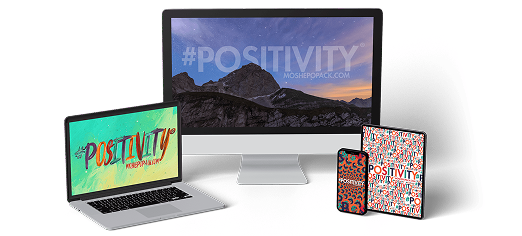Nebiha Boudjoudad is a fitness and mindset coach, who believes in a holistic approach to mental and physical fitness. She talks about the power of positivity, and how the universe will give you back exactly what you give it.
Why she loves the Law of Correspondence:
“The law of correspondence itself really speaks to the chaos or the calmness that you have. (Processing this) right before you go to sleep definitely makes sense because you have time to give yourself clarity and understand who you are and what you’ve been processing throughout the day. … Correspondence really just means, ‘Am I thinking in a bad light? Am I an angry person? Am I a sad person? Am I a ‘poor me’ person?’ And all of these emotions really do vibrate in a way that is really going to translate to everything else around me.”
Another law she thinks is critically important:
“There’s the Law of Oneness, which I love because it helps people stop thinking individually and start thinking in mass. When you think of the law of oneness, you think of everybody being ‘one’ and so we are interconnected on this web. And each of us individually are like a notch within the web and so we’re connected to all these different strands. And so, if you shake one part of the web then you’re shaking the rest of the web too.”
Why mindset is so important to Nebiha:
“Mindset is everything. I think our biggest blockers in life are, more often than not, our perspective on a situation rather than the situation. And, I think, I was always going to be a stuck person if I wasn’t able to change the way that I was viewing certain things. And that is mindset.”
Practical ways to start changing your mindset:
“Looking at the way you’re moving, and the way you’re collecting the results you’re getting from these actions. And if it’s not moving you in an upward trajectory then something needs to be adjusted. So, I think it’s being intentional about the results. Being observational about the results. Paying attention is the biggest way to understand that there needs to be a change, and then putting the change into action can be a lot simpler if people aren’t focused on doing massive changes of grandeur, and more so just small pivotal movements.”
The universe isn’t for you or against you:
“It’s just ‘it.’ It’s doing its thing. And it’s you understanding the ebbs and flows of it and just finding your rhythm in it. Understand that you’re supposed to take losses, and you’re supposed to take wins, and none of it is personal.”
Why people struggle to start changing their lives:
“It’s very hard for people to see themselves in a light that they’re not used to seeing themselves in. Meaning, I look in the mirror and I see this person every single day. And for me to operate and move in function like this world-renowned CEO multi billionaire type of person, I have to truly envision myself as this person that I’ve not been yet. And it’s very hard to get into the mindset of that. And so, people think it’s not realistic, and so it’s not attainable, and so why try?”
What can we learn from failure:
“Failure is everything. And it’s interesting because there’s such a negative outlook on it and I think that people need to change the narrative that they give themselves when they think about failure. Failure is so beautiful. It’s such an amazing thing.”

